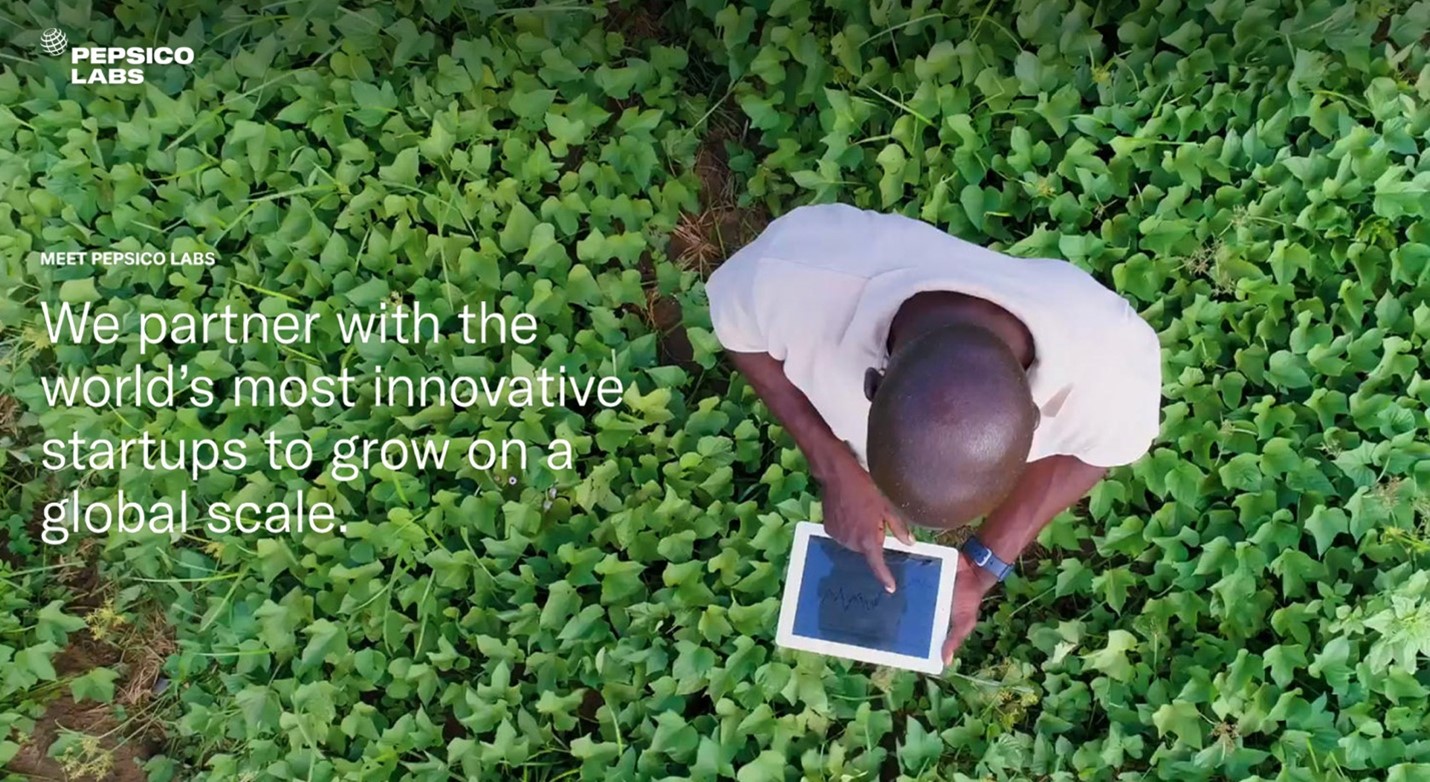The Unsung Heroes of the Innovation Economy? Forward-Thinking Corporate Executives
September 12, 2024

By: Paulina Karpis
In the innovation economy, startup founders and investors often get the spotlight. But the unsung heroes, especially in the B2B sector, are forward-thinking corporate executives.
For one, startups survive and thrive only when early adopters are willing to pilot their emerging technologies. But these executives are also leveraging startups to navigate seismic shifts in their industry and achieve tangible business outcomes — results I’ve seen firsthand from my vantage point at the nexus of the corporate and startup worlds.
Spurred by a desire to get in front of the AI wave and its ramifications, corporate champions span an alphabet soup of functions, from Chief Marketing Officers to Chief People Officers. Some work alongside structured innovation programs; others scout startups independently. All of these executives understand that rapid advancements in AI will fundamentally remake the fabric of their organizations in the coming decade.
Given the unrelenting rate of change in our current technological paradigm shift, engaging with startups isn’t just a strategy. It’s a necessity for staying competitive. Here are a few leading programs and executives that are harnessing startups to propel their businesses — and entire industries — into the future.
Driving Business Value with Minimal Upfront Risk
One of the most straightforward ways for corporations to engage with startups is through structured innovation programs. While corporate venture capital (CVC) is ubiquitous, these emerging models of startup-corporate collaboration go beyond investment. They focus on piloting and integrating new technologies to deliver business results faster than the typical 10-year venture timeline.
The success of these programs hinges on two factors. First, buy-in from across the business. Innovation, partnerships, or M&A teams are crucial but not enough — it’s the business unit leaders who help identify opportunities, secure budget, allocate resources, champion adoption, and provide valuable feedback during pilot phases.
A prime example is PepsiCo, whose innovation team (PepsiCo Labs) is embedded within business units. Since 2018, the team has evaluated thousands of startups for commercial fit, conducted over 250 pilots, and scaled over 30 solutions globally, contributing to PepsiCo’s growth, productivity, and sustainability KPIs. “Our goal is to identify the best and most relevant of the cutting-edge solutions, test their efficacy quickly, then integrate them into our business,” said PepsiCo Labs General Manager Jenny Oh.

Second, the best innovation programs carefully manage risk. They start with a low capital commitment, or one that gradually increases over time – an approach that carries less risk than deploying hundreds of millions from the company’s balance sheet.
Cloudflare’s Workers Launchpad program doesn’t invest capital into startups at all, but the program has supported roughly 80 emerging companies with mentorship and VC connections. Cloudflare has already internally piloted startups it discovered through the program, like ChainFuse, and even acquired one, Nefeli, which will help Cloudflare expand into the multi-cloud networking market.
“Workers Launchpad gives us an incredible vantage point over innovation in the space at a very wide lens. We get a lot of benefits without the need to deploy our capital, and startups save money on their infrastructure spend and accelerate time to market without the need to give up equity,” says Alex Dyner, SVP of Special Projects at Cloudflare. “Most importantly, we get to see things built on our network… decreasing the risk of technical integration.”
Accelerating Learning and Product Development
Engaging with startups is a powerful way to fuel learning and discover cutting-edge ideas and technologies.
Take Visa’s Innovation Network, for example. Each year, it draws in countless innovators through accelerators, pitch competitions, and hackathons, helping Visa executives discover local innovations with the potential for global scalability.
“Startups offer a profound comprehension of local markets and customer challenges, coupled with the aspiration and foresight to broaden their solutions globally,” says Valla Vakili, Visa Global Head of Innovation. “Collaborating with startups from diverse regions allows us to tap into a wider spectrum of ideas and innovations, enabling us to drive progress and generate value for our partners and clients.”
“Collaborating with startups from diverse regions allows us to tap into a wider spectrum of ideas and innovations, enabling us to drive progress and generate value for our partners and clients.”
— Valla Vakili, Visa Global Head of Innovation
Even without a structured innovation program, forward-thinking executives make it a habit to meet startups at conferences, answer founder outreach, and even invest personally.
These executives understand the strategic imperative of fueling their companies with new knowledge. “The traditional way of learning, which is going to training courses on existing tools, is long gone,” Anna Ransley, Chief Digital Information Officer at Quaker Houghton, told me. “Learning on the job, experimenting, doing your own research, and engaging with vendors, particularly startups, is where you get your best ideas about what is possible over the next three to five years.”
The rise of GenAI has only accelerated the need for this type of continuous learning. “An established organization may be more interested in knowledge and technology transfers than in the acquisition (or licensing) of a closed-code product,” said Frank Schmid, who is currently evaluating startups related to unstructured data in his role as Chief Technology Officer at Gen Re. “By engaging with startups, we can tap into their knowledge and solve for the short half-life of engineering knowledge in this rapidly advancing technology.”
“By engaging with startups, we can tap into their knowledge and solve for the short half-life of engineering knowledge in this rapidly advancing technology.”
— Frank Schmid, CTO, Gen Re
Startups also enable companies to solve thorny, underserved pain points, according to Nomura Global Head of Data & AI Products and Solutions Santanu Sengupta. He is currently piloting startups that measure the quality and effectiveness of AI-based applications.
The key is identifying startups that offer real, tangible value. Alvin Cho, VP of Engineering & Product and Head of Developer Experiences, Digital Innovation and Transformation at Fiserv, always asks: “How is the startup solving a real need for me?”
Creating Value Across Every Function
Early adopters aren’t just found in the CIO or CTO offices — they’re emerging from across a wide range of corporate functions. Executives in areas like HR, marketing, and sales are increasingly engaging with startups to drive business results.
Take People Tech Partners, an advisory and investment group for HR startups. Lattice Chief People Officer Cara Brennan Allamano founded the organization to address her profession’s lack of tooling. Over the last decade, 150 people leaders have consulted or invested in 120 startups (including 12 to 15 unicorns).

The result? “We elevated the profession,” Allamano said. “We got the tools in the hands of HR leaders so they get to spend their days on strategic priorities that are bigger game changers for the business.” With an eye toward what’s new and next, their current interest areas include menopause support, disability accommodation, AI, and tech-enabled benefits platforms. As the AI wave creates more opportunities, other industries will likely follow suit.
The structured approach exemplified by People Tech Partners for HR leaders will expand to every other function. As AI progress rapidly accelerates, the role of early corporate adopters— the unsung heroes of the innovation economy — will become even more critical.
By engaging with startups, these executives stay ahead of the curve, anticipate the forces that will shape their business, and drive both top-line growth and bottom-line efficiency. In the AI age and beyond, their ability to harness the insights and technologies that startups offer will be key to leading their companies.
– Paulina Karpis developed and now leads B Capital’s early-stage platform capabilities.
Her primary focus is connecting our seed and Series A companies with corporate clients and partners.
LEGAL DISCLAIMER
Certain statements reflected herein reflect the subjective opinions and views of B Capital personnel. Such statements cannot be independently verified and are subject to change. Reference to third-party firms or businesses does not imply affiliation with or endorsement by such firms or businesses. The information herein does not constitute or form part of an offer to issue or sell, or a solicitation of an offer to subscribe or buy, any securities or other financial instruments, nor does it constitute a financial promotion, investment advice or an inducement or incitement to participate in any product, offering or investment. Much of the relevant information is derived directly from various sources which B Capital believes to be reliable, but without independent verification. This information is provided for reference only and the companies described herein may not be representative of all relevant companies. You should not rely upon this information to form the definitive basis for any decision, contract, commitment or action.


